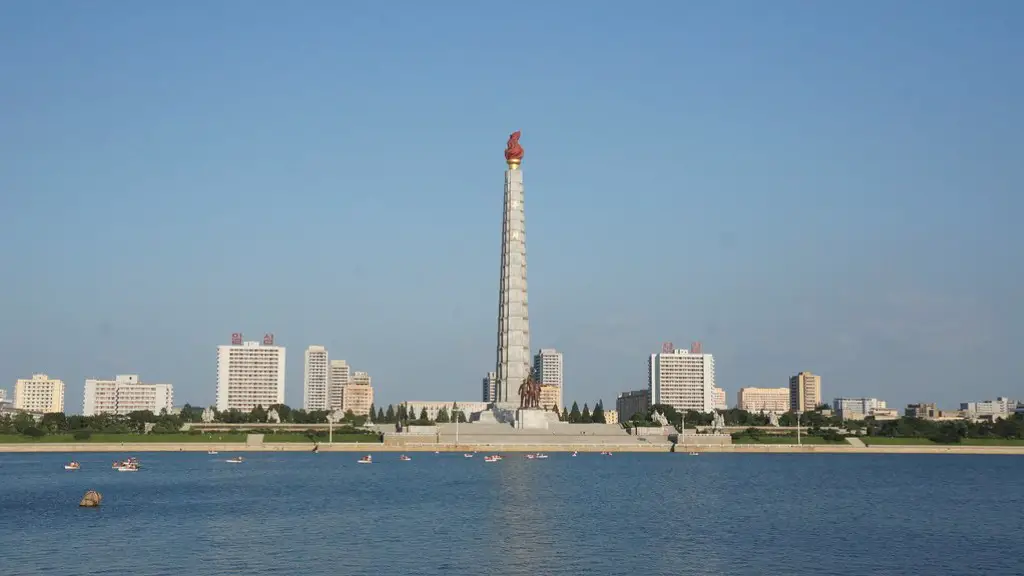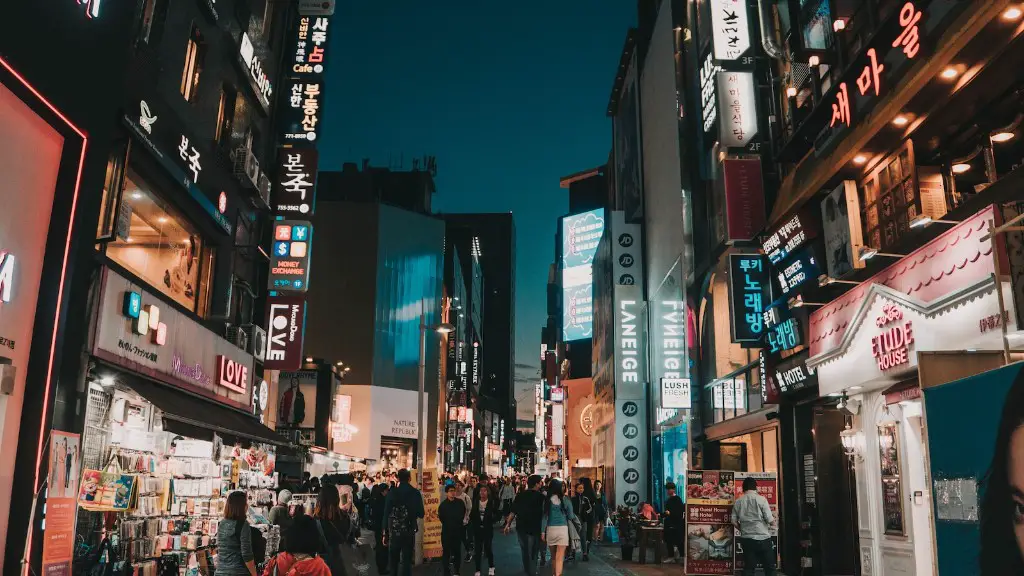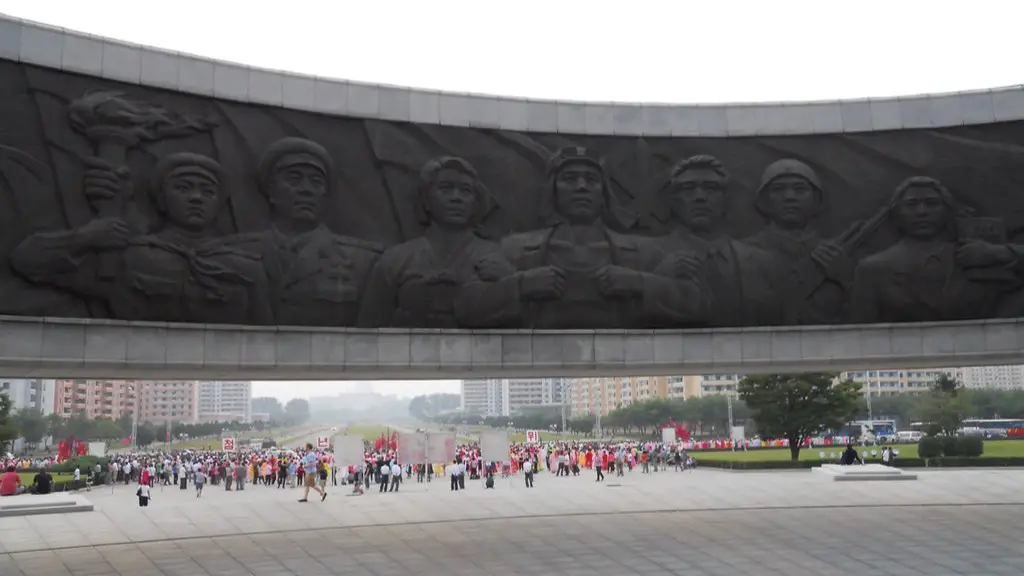Is North Korea Really Evil?
The state of North Korea has often been seen as a hermit kingdom, cut off from the rest of the world. This image of North Korea as an evil empire is spelled out most famously in the popular fictional story “The Boy Who Cried Wolf”. For many, North Korea is viewed as the prototypical evil nation, unleashing missiles and defectors on the world with impunity. But is North Korea truly evil or just another victim of the geopolitical power struggles of the world’s nations?
Despite its reputation for secrecy and belligerence, North Korea is not a monolithic state. It is a complex amalgamation of political and economic agendas, each striving for its own hegemony within the framework of the state. The DPRK (Democratic People’s Republic of Korea) is a socialist nation-state run by a tight clique of top leaders, who claim to be democratic in their approach to governance. The vast majority of its population lives in abject poverty while its leaders continue to consolidate power and privilege in their attempts to preserve national security. This complex mix of economics and politics has created a nation that is deeply divided, between those with access to wealth and power and those without.
The implications of this socio-economic reality can be seen clearly in North Korea’s attitude towards international relations. On one hand, it is highly suspicious of any foreign initiatives, such as economic sanctions. It sees these measures as attempts to undermine the government’s sovereignty or to deprive the citizens of about their rights to self-determination. North Korea is also deeply suspicious of the United States and its Western allies, often claiming that they are an advanced version of imperialism.
On the other hand, North Korea often views itself as a victim of international forces, from American foreign policy to Chinese investments. It claims that its isolation from the world has caused the country to lag behind in many areas, from technology to education. North Korea also claims that it is being held to an unrealistic set of standards compared to other nations, and that it is being unfairly demonized for its behavior.
While North Korea clearly presents a danger to the stability of the region, it is not necessarily an ‘evil’ nation. It is a country facing deep economic and social problems, many of which stem from its leaders’ attempts to consolidate power and privilege. Whether it is viewed through the lens of its own national perspective or the outside world’s, it is difficult to place North Korea in the same category of other nations that are typically seen as ‘evil’.
North Korea’s Relationship to Nuclear Weapons
North Korea’s nuclear program has been a source of constant tension between the nation and its regional allies, and the United States. For years, North Korea has maintained a seemingly unyielding stance on nuclear weapons and missile development, despite multiple international denunciations and embargoes imposed upon it in attempt to deter its military ambitions. The resulting arms race between North Korea and its enemies has stoked fears of a devastating war in the dark corner of the world where North Korea resides.
However, North Korea’s interests in nuclear weapons and their potential adaptation for military use are widely misunderstood. North Korea’s nuclear program is, in fact, primarily driven by the need for domestic energy. The harsh conditions of life under the rule of the Kim dynasty has left the country with an unreliable power grid, with only a small amount of energy being generated from non-nuclear sources. As such, nuclear energy has become an increasingly attractive option for North Korea to meet its energy needs.
Nevertheless, North Korea’s nuclear ambitions remain a matter of deep concern for the international community. Despite numerous offers from the United States to explore alternative paths towards long-term stability, North Korea has snubbed all diplomatic efforts and
continues to focus its attentions on developing its arsenal. This intransigence has led some experts to believe that the nation is actively seeking to use the weapons to achieve some perceived goal of national security, with potentially disastrous consequences.
For now, North Korea’s saber rattling and rhetoric remain a source of tension and worry in its region and beyond. But it also serves as an important reminder of the power of strong diplomatic efforts and economic incentives in attaining peace and stability. The rule of Kim Jong Un, while hardly democratic or just, may yet be open to negotiation, if only the international community can muster the courage to take a stand.
North Korean Human Rights Abuses
North Korea has been continuously lambasted for its sweeping human rights abuses. Amnesty International has continued to document cases of enforced disappearances and unfair trials, torture, and arbitrary arrests and detentions, among other serious violations. North Korean women who have managed to flee the country have revealed that they have suffered from sexual violence and other forms of discrimination.
Reports also indicate that North Korea has established a network of labor camps, as well as a system of counter-revolutionary punishments to instill a sense of fear and submission among the population. According to researchers, the number of prisoners held in the labor camps at any given time is estimated to be between 150,000 and 200,000. These individuals are subjected to harsh, inhuman conditions, and are not even afforded the right to defend themselves against the charges that have led to their internment.
Although the human rights situation in North Korea is considered by many to be dire, there is also a general consensus that it is improving. In recent years, some of the most concerning practices, such as public executions and arbitrary detention, have largely stopped and some North Korean citizens have experienced a degree of personal freedom that was previously unattainable.
At the same time, the international community must not ignore the numerous human rights abuses that continue to plague North Korea. By shining a light on these issues, and by actively working to promote the protection of human rights in the country, the international community can exert a positive influence upon North Korean society and its leaders.
The North Korean Media Landscape
North Korea’s media landscape is thoroughly controlled by the state. All of the country’s media outlets, including television, radio, newspapers, and magazines, are tightly regulated to ensure that they remain in line with the nation’s official ideology and to restrict access to foreign ideas, news, and culture. Solely pro-state content is disseminated in the name of preserving the image of the ruling party and promoting a positive view of North Korea to its inhabitants.
It’s worth noting, however, that North Koreans have gradually gained access to external sources of information. With the emergence of the black market economy and the growth of mobile internet access, North Koreans have begun to get news about the outside world and search for foreign media. Despite the government’s attempts to quash such activities, a growing number of North Koreans have become exposed to the outside world and the benefits it offers.
At the same time, North Korea continues to engage in a number of manipulative propaganda campaigns in an attempt to keep its citizens in line. Rhetoric that demonizes the outside world and glorifies military service have become notable features of North Korean media. The combination of these strategies has led to an information environment that is lacking in truth and accuracy, leaving the population largely in the dark about international affairs and their own country’s politics.
North Korea’s Political System
North Korea is a one-party state ruled by the Workers’ Party of Korea (WPK) since 1949. Alongside its governing body, the Supreme People’s Assembly, the WPK maintains a strong grip on power, with strict limits on freedom of assembly and political dissent. The vast majority of citizens are prohibited from accessing the internet and other external communications, and any public demonstration or gathering is strictly monitored. However, recent changes have seen the establishment of the nation’s first-ever political conference and the expansion of access to external sources of information.
Due to its strict control on expression and dissent, North Korea remains a secretive nation. Information regarding the inner workings of the nation’s government and decision-making process is kept hidden from the public and can only be partially ascertained through leaked documents and interviews with defectors. Nevertheless, it is clear that the Supreme Leader Kim Jong Un and the WPK maintain a tight grip on power and make all the major decisions regarding the country’s policies.
North Korea is not a democratic nation and its citizens have few rights by international standards. However, the country has recently implemented some reforms that have given its citizens new freedoms, such as access to external sources of information. While North Korea remains a deeply oppressive regime, those reforms are a step in the right direction and should be encouraged by the international community.
North Korea’s Environmental Crisis
North Korea is facing an unprecedented environmental crisis. The deforestation of its forests, the pollution of its rivers and lakes, and the extreme weather threats resulting from climate change are among the most severe in the world. In recent years, the damage has been exacerbated by the nation’s drought, famine, and environmental restrictions.
The government of North Korea has failed to address the environmental crisis, placing the blame on its citizens instead. To make matters worse, there are severe restrictions on gathering information on the environment and its effects, making it difficult to ascertain and respond to the environmental issues facing the nation.
Thankfully, some progress has been made in recent years. In 2019 the United Nations Environment Programme (UNEP) opened a North Korean field office in Pyongyang in an effort to promote sustainable development. In addition, the North Korean government has been in contact with the UN to discuss ways to address the crisis and to develop a plan for improving its environmental management
However, much more needs to be done if North Korea is ever to address its environmental crisis. International actors must work to ensure that North Korea has access to the necessary resources and expertise to effectively tackle the country’s environmental problems. Doing so could ensure sustainable development for North Korea and help the country avoid further environmental catastrophes in the future.
North Korea’s Global Reputation
North Korea has earned an unenviable reputation as a hermit kingdom and a “rogue state” in the international community. The country is widely seen as a source of instability and threat in the region and has been the subject of numerous economic sanctions and condemnations by the United Nations.
The international community’s approach towards North Korea is often centered on punishing the nation rather than engaging in meaningful dialogue. This has done little to address the issues of poverty and human rights abuses that plague the nation and has only worsened the suffering of its people.
Nevertheless, there have been some efforts in recent years to reach out to North Korea and engage in meaningful dialogue. The Trump Administration’s historic dialogue with North Korean leader Kim Jong-un in 2018 was a major step in that direction and served as a sign of hope for those seeking meaningful relations between North Korea and the rest of the world.
In the end, North Korea remains an impoverished and isolated nation. Its international reputation has been marred by its authoritarian rule and aggressive behavior. Still





